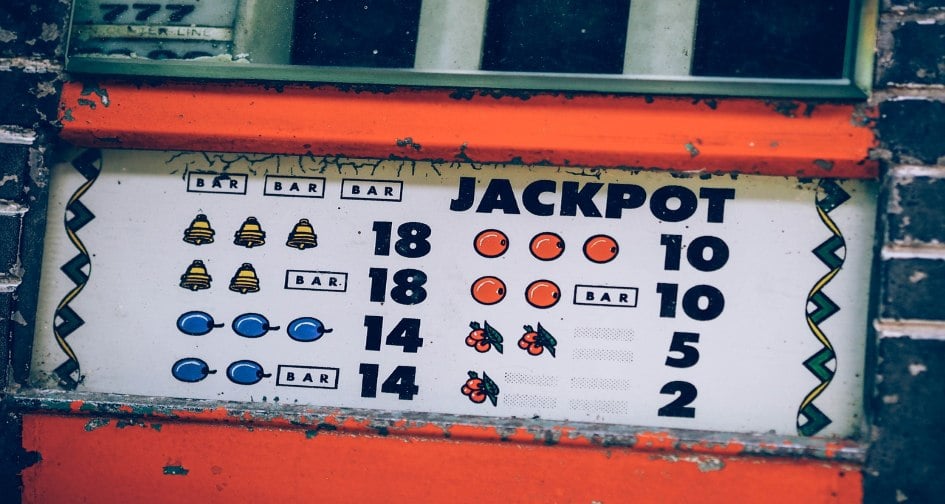It is very funny that gamblers consider themselves as investors. Although most people seem to think they are both the same thing. I’m sorry to break it to you that they definitely are not the same thing. They may only share the concept of taking risks but the risks taken by gamblers should be given an entirely different dictionary name (maybe “mad risk” or something). A difference between gamblers and investors lies in the odds. I mean the odds of you winning – you certainly do not wish to lose. Let us assume you play a game of dice in which you have to roll a six-sided die. Now the rules of the game state that if you get a 1, 2, 3, result on the die, you win $20. If you then score a 4, 5, 6, on the die, you lose $20.
The fact remains that if you continuously play this game you would break even because the chances of winning to losing (the odds) are fifty to fifty. The longer you play, the closer your results will tend to approach zero in the game. Over and over, you would end up with the same amount of money. The net gain will be zero. There is no skill involved in throwing a die. Even a monkey could throw a die. In fact, several monkeys have done that. Now let us talk about investors. If you take a look at the stock market and add up the value of all the companies on the stock market, which will truly amount to a huge sum, you would see that every year, that value grows by about 2.5% (about 1.5% if adjusted for inflation). This is because the stock market represents the economy and the world economy grows on a yearly basis. How? The answer is simple. Production increases, products increase, energy production increases, population increases, etc. Wealth is being created, value is being added. That is the stock market. If you decided to buy and sell stocks completely on a random basis and they were diversified, no skills involved as our game of dice stated earlier on, that monkey we talked about could do this too. You will find that your private return will include a profit of more or less 2.5%. This means if you start up your business with $2000, you would end up with $2050.

Looks small? Do the math for a large amount of money. Remember we are forgetting profits could go far more than that. That is an investment. The odds are mostly in your favor. In gambling, the odds are against you. That’s right, ladies and gentlemen. It does not involve the value creation in the economy. It only involves the redistribution of money between players. Just like our dice game, this time let’s assume if you score a 1, 2, 3 or 4 on the die, you lose $20 but you win $20 if you score a 5, 6. Now, imagine you kept playing this game. You would lose money because the odds are stacked against you. That’s a difference between a gambler and an investor – the odds are always rigged against a gambler.

Investors enjoy something that gamblers will never enjoy. Over hundreds of years, the stock market has given stable returns. This is as far away from gambling as you can come. Gambling in a casino, you will lose money. No gambler has ever enjoyed stable returns. In the stock market, you select good companies that you perceive may perform well. This means that some companies are better performing than others. Is this not this glaring from the everyday life we see? In a stock market, you can evaluate criteria such as company management, the product, the brand, etc. Do gamblers even have any criteria to evaluate when their chances of winning are only determined by odds rigged in their favor? To quash the comparison, investors receive dividends. A dividend is a hard cash payout. It is income earned as a result of holding an investment in a business. In serious, definition, an investment is a prospective return with reasonable statistic readability. This is because you invest in something that will generate cash flow. Investors are more likely to expect positive returns.

Although I accept investors and gamblers share a property that involves risk-taking, this is not sufficient to call investors and gamblers “birds of a feather”. If investors are not gamblers, so what are they? Our economy consists of companies and the government, who borrow your money, excess cash that you do not need at the moment. They then use it to execute business and other projects. The returns you get on that are truly profit. Say I want to start a candy shop, I could take a loan. For taking this loan, a bank requires me to pay an annual return, say 5%, until the loan is returned. An investor might choose to provide my capital by equity – a share of the profits which in my case will be large since personally, I make great candies. An investor may choose to loan the government or company, money in the form of debt. A term used for this money is “bond”. Why do I feel that we are really saying a lot about investors and little about gamblers? This is simply because gambling is short-lived. The only long term concept behind gambling is chronic addiction, multiple debts and a host of issues. Investors buy shares. When you buy shares, you buy a piece of the company and therefore own a bit of it. As an owner of the company, you do well as the company progresses. You are eligible for a share of profits. You might also think buying shares and bond are risky but make a guess, gambling is way riskier and careless. A gambler could lose all his assets in a gamble (a very short period). This is not the same for investors as you are more likely to expect a positive return. In fact, if you lose money, you lose it gradually and you could decide to forfeit your shares if you tend toward losing too much money.
A peculiar distinction between a gambler and an investor is the risk management opportunities they enjoy. Investment risks can be effectively managed. Can you manage gambling risks? The answer is no, despite the rumors that some people can manage gambling risks. The truth is that the odds of winning by a gambler is always fifty percent. How then can risks be managed by an investor? Risks can be managed by investors by diversification. This is done by investing in entirely different products and businesses so that the failure of a business does not affect the returns on another. This can be attributed to a saying of not putting all of one’s egg in a basket.
Investors and gamblers both entail capital involvement in order to make profits. Investors and gamblers always try to minimize risk and maximize rewards.
Investors enjoy long term benefits when compared to gamblers. Investors are more likely to receive positive returns than gamblers. Investors can reduce their losses. Gamblers cannot. Investment usually has defined risks, unlike gambling. Gamblers tend to react based on emotional instincts, unlike investors who invest based on reliable statistical data and inference. Whichever you choose to become – an investor or a gambler, always remember which will pay you in the long run because the long run always matters the more.



